Introduction:
Agriculture is the indispensable area of production that ensures humans satisfy their basic needs by utilizing food. On the other hand, agriculture is the biggest water consumer. The population of the world continues to grow. The consequence is that the demand for food also grows, which puts more stress on the same water resources. Here smart irrigation systems are viewed as the most essential problem-solving way for unsatisfied water needs in agriculture. These systems which based on advanced technologies to make full use of water and crop yields and make agriculture sustainable.
The creations of smart irrigation systems become the embodiment of innovation in agriculture as they act as beacons of hope in the context of poor water resources. By using accuracy, responsiveness, and data-led analytics (or data-driven insights), these systems change the way water management is done; in turn resulting in sustainable agriculture in the face of a changing world. Considering water scarcity, irrigation smart tech a crucial tool is developed to help farmers oversee, sustain water resources, achieve higher productivity and become capable to deal with the changing conditions.
The Importance of Water Conservation in Agriculture:

The issue of water conservation is considered an ultimate one in farming activity because water places in the category of powerful drive to crop growth, food security, and healthy ecosystems. With rising populations, the demand for food consistently increases too, and increases the current water stress. As a result, water resources that are already under pressure become even more precious and urgent efficient water management has to be employed in agricultural systems to achieve sustainability.
By nature, water conservation in agriculture brings about two sides of the same coin which have to do with innovations and technologies that maximize water usage, reduce wastage, and protect water quality. This allied approach is not only critical to addressing the water scarcity challenge, but it would also help in promotion of the environmentally sustainable growth in this fast-changing climate.
Among the most powerful reasons behind growing water conservation in agriculture is the direct link between crop performance and harvest of the honey. The volume of water stands at the basic level for keeping the soil damp, providing the correct conditions for feeding and photosynthesis, being unavoidable for the plants’ growth. Through the adoption of water-saving irrigation techniques like drip and precision irrigation as well as soil monitoring, growers will have their crops efficiently water only as much as they need and when needed, boosting gross production while reducing the usage of scarce water resources.
Besides, water conservation in agriculture holds a key position in reducing the water drawout problem related to water extraction and irrigation. There can be negative consequences of overuse of water resources like falling levels of aquifers, soil degradation, and ecosystem damage in lakes, rivers, and seas. The use of water-saving technologies and agricultural practices will enable farmers to reduce the strain on freshwater sources, prevent soils from washing away, and slow the movement of nutrients to water bodies thereby protecting sensitive habitats and polluting water bodies from damage and loss of habitat.
Also, water conservation practice in agriculture has the extra benefit of being a part of closely connected efforts of mitigation of climate change results and building into these results resilience. Climate variability, is highly problematic for agriculture, since irregular rainfall patterns, lengthy droughts, and severe natural disasters are uncertain in terms of water availability. Embracing a sustainable water management plan; such as drain use of rainwater harvesting, soil conservation, and agroforestry, farmers can cope up with the coping with the climatic hazards. They can maintain the resilience of crops as well as provide the long-term viability of agricultural production.
Besides its current function of increasing yields, while at the same time preserving the environment, water conservation in agriculture also serves to benefit the economy. They also can minimize many costs, such as energy consumption, irrigation, and water purification, by reducing their water usage. Furthermore, including smart water management programs in agriculture practices may help in making an operation more resistant to water-related risks like water shortage, regulatory limitation, and uncertainty in supply and demand which can also contribute to enhancing the competitiveness and profitability of agriculture operations.
However, in the last line, it can be mentioned that the significance of water conservation in agriculture could be underestimated. Grasping water-saving techniques, pursuing sustainable irrigation practices, and ameliorating the consciousness of water resources by farmers can contribute to the improvement, enhancement, and long-run stability of the agricultural systems while protecting the environment for the next generations. The very fact that global water-related problems are intensifying shows that water conservation efforts in agriculture should be prioritized as a means of alleviating the food security challenges, securing the environmental status, and also promoting the well-being of citizens locally and internationally.
Role of Smart Irrigation Systems in Addressing Water Scarcity:
In conclusion, the lasting effects of the Vietnam War on its troops have been both psychological and physical. Post-combat mental health issues stemming from PTSD and their impact on daily life, employment, and relationships have had a significant impact on veterans.
The problem of water shortage is among the greatest challenges that endanger agricultural sustainability. Widespread scarcity of water and possible food deficit are caused by it on the scale of the planet. Meanwhile, the most essential devices are smart irrigation systems which help to fight water shortage and develop agriculture production with more mechanisms of water management. By leveraging advanced technologies and data-driven insights, smart irrigation systems play a pivotal role in addressing water scarcity through several key mechanisms: By leveraging advanced technologies and data-driven insights, smart irrigation systems play a pivotal role in addressing water scarcity through several key mechanisms:
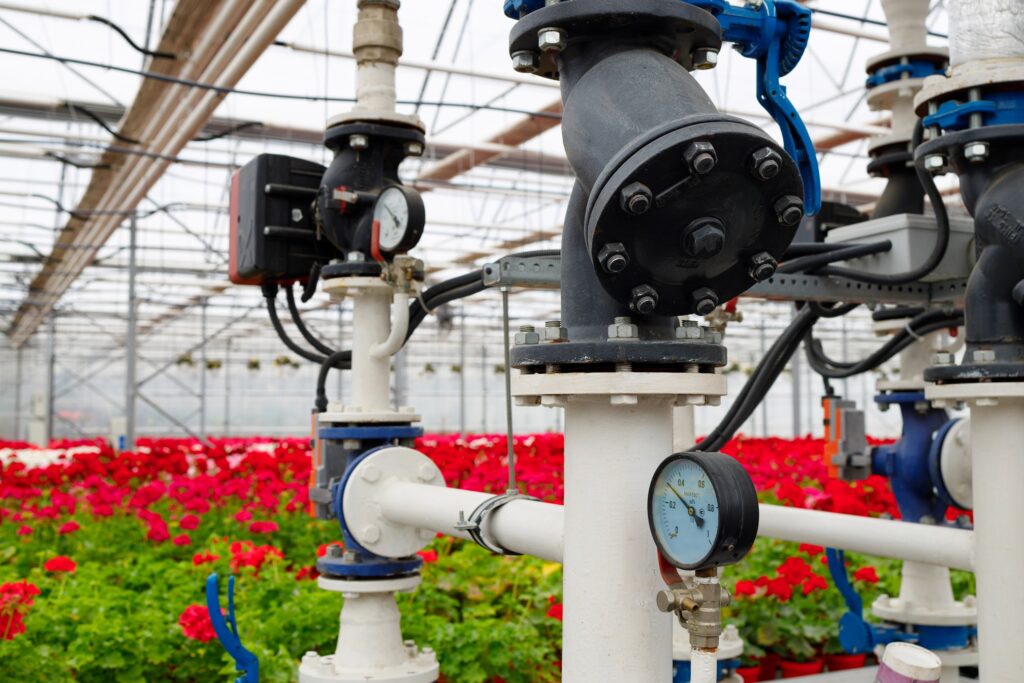
1. Precision Water Management: Automatic irrigation systems allow accurate control and adaptation to the water needs of the crop, bleeding the excess and adding more when it is needed in the right place and at the right time. Installation of soil moisture sensors, weather data, and real-time monitoring, ensures the operation of the system is minimally wasteful, guaranteeing water conservation in areas stressed by water shortages.
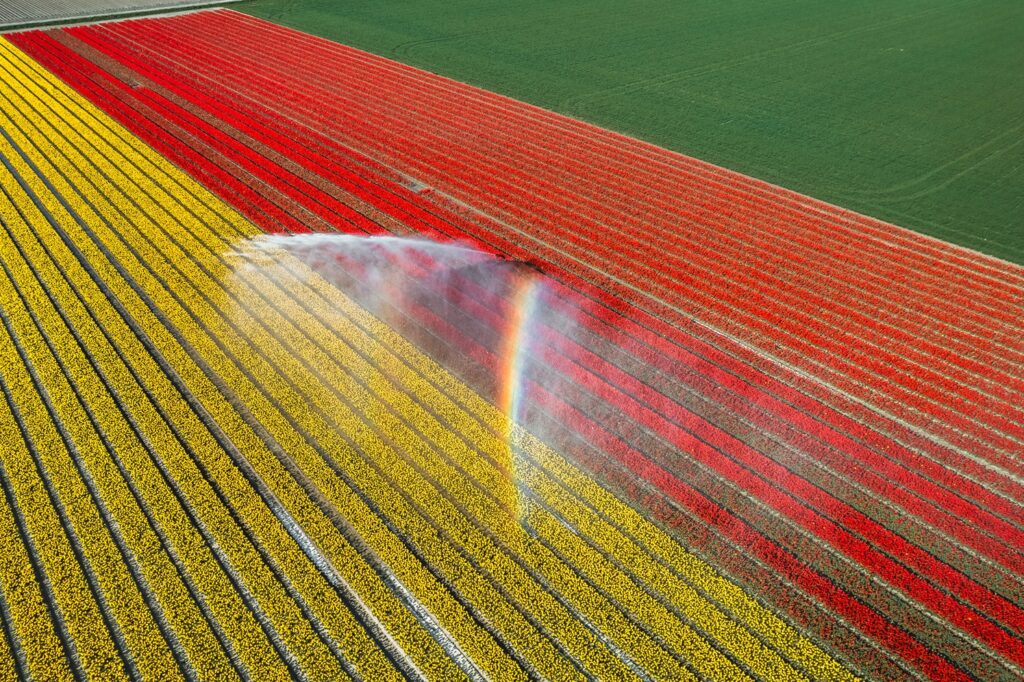
2. Adaptive Irrigation Scheduling: An important aspect of smart irrigation systems is their capability to modify the irrigation time depending on current weather conditions and plants’ requirements. These systems will adopt data analytics and decision support systems that will automatically modify irrigation schedules in response to factors such as humidity levels, weather forecasts, and evapotranspiration indicators. The flexible strategy that is used allows for efficient water usage, and reduction of runoff, and also bylaws the over-irrigation, thus water shortages are kept at a low level leading to good crop development and hence high food productivity.
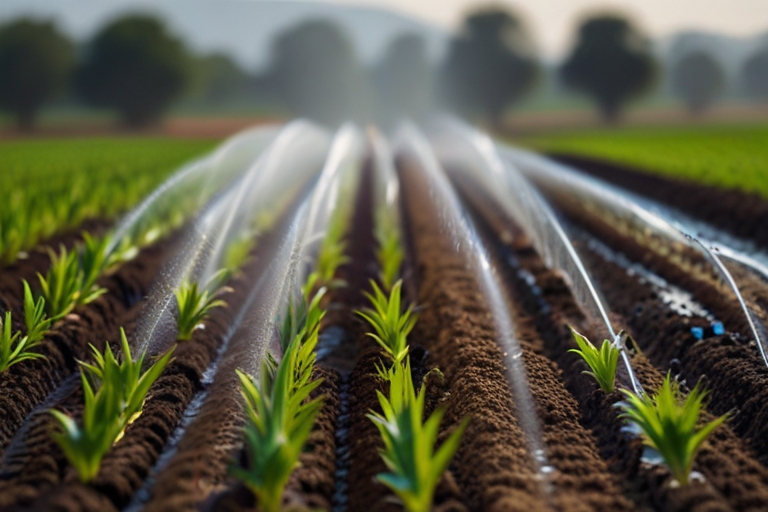
3. Optimized Resource Allocation: Smart irrigation systems enable more precise distribution of the irrigation water, i.e. deployment to the areas that are in most need of it. Employing methods such as VRI and drip irrigation which adjust water application rates to complement different soil types, topographical features, and species within a field their application is a key part of precision agriculture. Through reduction of water loss and increase of water use efficiency, smart irrigation systems enable the farmers to attain maximum crop yields using less water, a measure which in turn suffices the scarce water need.

4. Real-time Monitoring and Control: The onsite monitoring capacity of smart irrigation is such that farmers are empowered to consistently track soil moisture levels, weather conditions, and crop performance and hence take measures as promptly as necessary. These systems can monitor the soil moisture all the time and provide timely insights and alerts to farmers, enabling them to manage irrigation more smartly according to the changing conditions, react to the plant water stress, and optimize irrigation practices at the moment to maximize water use efficiency and crop productivity.
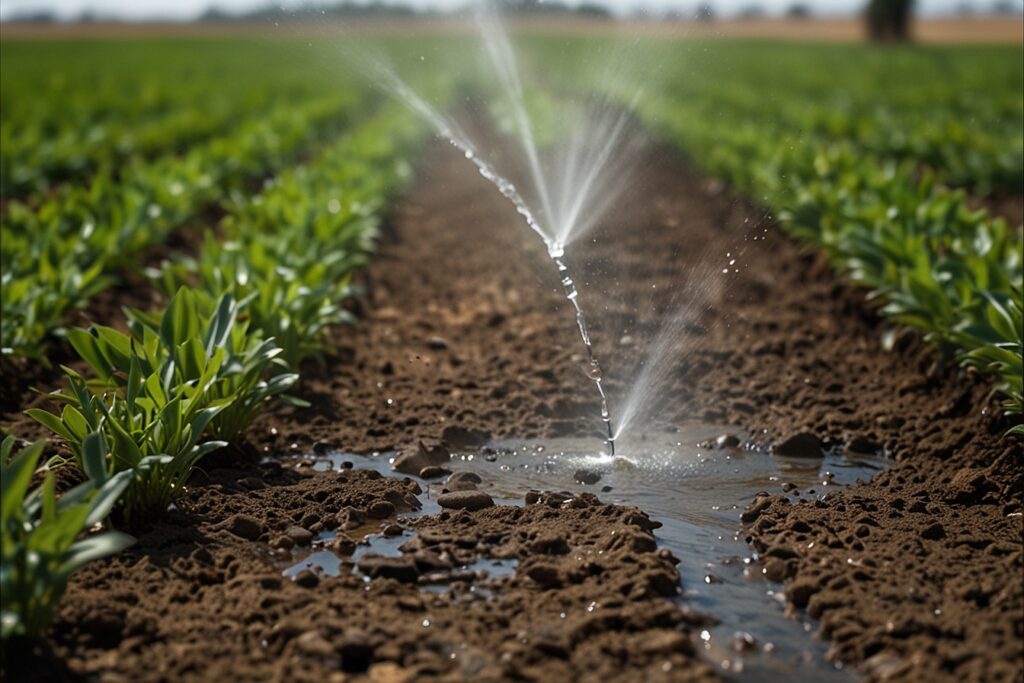
5. Data-driven Decision Making: Smart irrigation systems do not only use data and predictive modeling as sources of guidance in managing the amount of water used but also do so in an optimized way. It does this through analyzing the historical data weather patterns, and crop parameters and then generating workable outcomes and advice for irrigation scheduling, resource distribution, and water conservation techniques. Through a data-oriented system, farmers can process irrigation practices, and water users minimization, and adapt to changing environmental conditions, hence, making their resilience to water scarcity.
In short, smart irrigation systems are one of the key issues in dealing with water shortage through water resources management, adaptive irrigation scheduling, efficient resource allocation, real-time monitoring and control, and data-driven decision-making, respectively. The system has been formulated in such a way that it seeks to maximize irrigation efficiency, minimize water wastage, and enhance agricultural productivity becoming a water management model that combats the effect of water stress on the food security sector and the planet. The increasing water scarcity entails issues like agricultural production thus the launch, implementation, and large-scale adaptation of smart irrigation systems becomes a critical market in the capacity enhancement for the resilient and sustainable agricultural sector amidst the water shortage challenge.


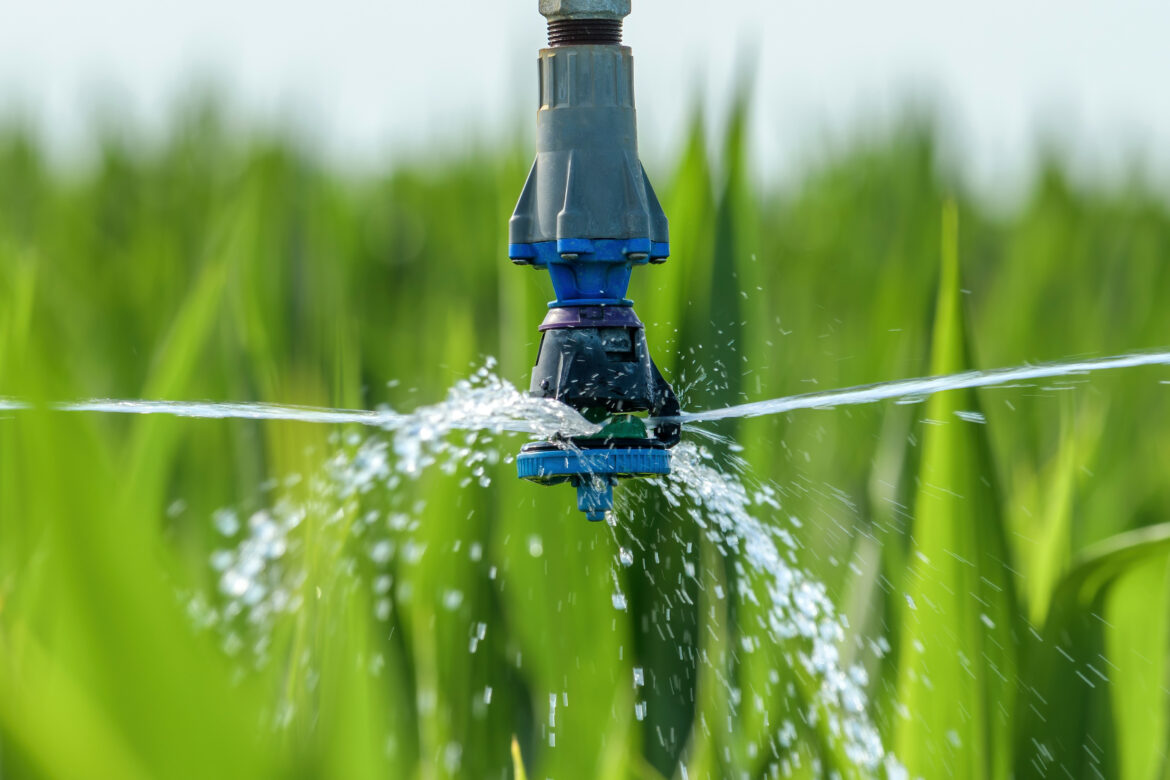
1 comment
Your point of view caught my eye and was very interesting. Thanks. I have a question for you.